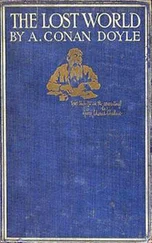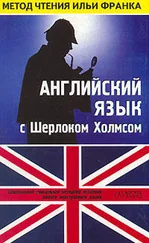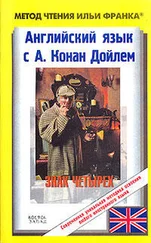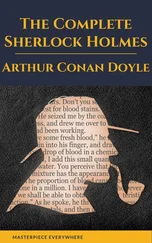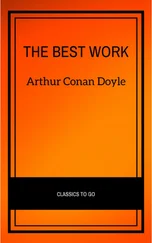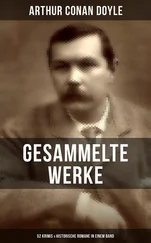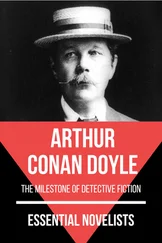Arthur Conan Doyle - Rodney Stone
Здесь есть возможность читать онлайн «Arthur Conan Doyle - Rodney Stone» — ознакомительный отрывок электронной книги совершенно бесплатно, а после прочтения отрывка купить полную версию. В некоторых случаях можно слушать аудио, скачать через торрент в формате fb2 и присутствует краткое содержание. Жанр: foreign_prose, на английском языке. Описание произведения, (предисловие) а так же отзывы посетителей доступны на портале библиотеки ЛибКат.
- Название:Rodney Stone
- Автор:
- Жанр:
- Год:неизвестен
- ISBN:нет данных
- Рейтинг книги:4 / 5. Голосов: 1
-
Избранное:Добавить в избранное
- Отзывы:
-
Ваша оценка:
- 80
- 1
- 2
- 3
- 4
- 5
Rodney Stone: краткое содержание, описание и аннотация
Предлагаем к чтению аннотацию, описание, краткое содержание или предисловие (зависит от того, что написал сам автор книги «Rodney Stone»). Если вы не нашли необходимую информацию о книге — напишите в комментариях, мы постараемся отыскать её.
Rodney Stone — читать онлайн ознакомительный отрывок
Ниже представлен текст книги, разбитый по страницам. Система сохранения места последней прочитанной страницы, позволяет с удобством читать онлайн бесплатно книгу «Rodney Stone», без необходимости каждый раз заново искать на чём Вы остановились. Поставьте закладку, и сможете в любой момент перейти на страницу, на которой закончили чтение.
Интервал:
Закладка:
Only once in those long years did my father return home, which will show you what it meant to be the wife of a sailor in those days. It was just after we had moved from Portsmouth to Friar's Oak, whither he came for a week before he set sail with Admiral Jervis to help him to turn his name into Lord St. Vincent. I remember that he frightened as well as fascinated me with his talk of battles, and I can recall as if it were yesterday the horror with which I gazed upon a spot of blood upon his shirt ruffle, which had come, as I have no doubt, from a mischance in shaving. At the time I never questioned that it had spurted from some stricken Frenchman or Spaniard, and I shrank from him in terror when he laid his horny hand upon my head. My mother wept bitterly when he was gone, but for my own part I was not sorry to see his blue back and white shorts going down the garden walk, for I felt, with the heedless selfishness of a child, that we were closer together, she and I, when we were alone.
I was in my eleventh year when we moved from Portsmouth to Friar's Oak, a little Sussex village to the north of Brighton, which was recommended to us by my uncle, Sir Charles Tregellis, one of whose grand friends, Lord Avon, had had his seat near there. The reason of our moving was that living was cheaper in the country, and that it was easier for my mother to keep up the appearance of a gentlewoman when away from the circle of those to whom she could not refuse hospitality. They were trying times those to all save the farmers, who made such profits that they could, as I have heard, afford to let half their land lie fallow, while living like gentlemen upon the rest. Wheat was at a hundred and ten shillings a quarter, and the quartern loaf at one and ninepence. Even in the quiet of the cottage of Friar's Oak we could scarce have lived, were it not that in the blockading squadron in which my father was stationed there was the occasional chance of a little prize-money. The line-of-battle ships themselves, tacking on and off outside Brest, could earn nothing save honour; but the frigates in attendance made prizes of many coasters, and these, as is the rule of the service, were counted as belonging to the fleet, and their produce divided into head-money. In this manner my father was able to send home enough to keep the cottage and to pay for me at the day school of Mr. Joshua Allen, where for four years I learned all that he had to teach. It was at Allen's school that I first knew Jim Harrison, Boy Jim as he has always been called, the nephew of Champion Harrison of the village smithy. I can see him as he was in those days with great, floundering, half-formed limbs like a Newfoundland puppy, and a face that set every woman's head round as he passed her. It was in those days that we began our lifelong friendship, a friendship which still in our waning years binds us closely as two brothers. I taught him his exercises, for he never loved the sight of a book, and he in turn made me box and wrestle, tickle trout on the Adur, and snare rabbits on Ditching Down, for his hands were as active as his brain was slow. He was two years my elder, however, so that, long before I had finished my schooling, he had gone to help his uncle at the smithy.
Friar's Oak is in a dip of the Downs, and the forty-third milestone between London and Brighton lies on the skirt of the village. It is but a small place, with an ivied church, a fine vicarage, and a row of red-brick cottages each in its own little garden. At one end was the forge of Champion Harrison, with his house behind it, and at the other was Mr. Allen's school. The yellow cottage, standing back a little from the road, with its upper story bulging forward and a crisscross of black woodwork let into the plaster, is the one in which we lived. I do not know if it is still standing, but I should think it likely, for it was not a place much given to change.
Just opposite to us, at the other side of the broad, white road, was the Friar's Oak Inn, which was kept in my day by John Cummings, a man of excellent repute at home, but liable to strange outbreaks when he travelled, as will afterwards become apparent. Though there was a stream of traffic upon the road, the coaches from Brighton were too fresh to stop, and those from London too eager to reach their journey's end, so that if it had not been for an occasional broken trace or loosened wheel, the landlord would have had only the thirsty throats of the village to trust to. Those were the days when the Prince of Wales had just built his singular palace by the sea, and so from May to September, which was the Brighton season, there was never a day that from one to two hundred curricles, chaises, and phaetons did not rattle past our doors. Many a summer evening have Boy Jim and I lain upon the grass, watching all these grand folk, and cheering the London coaches as they came roaring through the dust clouds, leaders and wheelers stretched to their work, the bugles screaming and the coachmen with their low-crowned, curly-brimmed hats, and their faces as scarlet as their coats. The passengers used to laugh when Boy Jim shouted at them, but if they could have read his big, half-set limbs and his loose shoulders aright, they would have looked a little harder at him, perhaps, and given him back his cheer.
Boy Jim had never known a father or a mother, and his whole life had been spent with his uncle, Champion Harrison. Harrison was the Friar's Oak blacksmith, and he had his nickname because he fought Tom Johnson when he held the English belt, and would most certainly have beaten him had the Bedfordshire magistrates not appeared to break up the fight. For years there was no such glutton to take punishment and no more finishing hitter than Harrison, though he was always, as I understand, a slow one upon his feet. At last, in a fight with Black Baruk the Jew, he finished the battle with such a lashing hit that he not only knocked his opponent over the inner ropes, but he left him betwixt life and death for long three weeks. During all this time Harrison lived half demented, expecting every hour to feel the hand of a Bow Street runner upon his collar, and to be tried for his life. This experience, with the prayers of his wife, made him forswear the ring for ever, and carry his great muscles into the one trade in which they seemed to give him an advantage. There was a good business to be done at Friar's Oak from the passing traffic and the Sussex farmers, so that he soon became the richest of the villagers; and he came to church on a Sunday with his wife and his nephew, looking as respectable a family man as one would wish to see.
He was not a tall man, not more than five feet seven inches, and it was often said that if he had had an extra inch of reach he would have been a match for Jackson or Belcher at their best. His chest was like a barrel, and his forearms were the most powerful that I have ever seen, with deep groves between the smooth-swelling muscles like a piece of water-worn rock. In spite of his strength, however, he was of a slow, orderly, and kindly disposition, so that there was no man more beloved over the whole country side. His heavy, placid, clean-shaven face could set very sternly, as I have seen upon occasion; but for me and every child in the village there was ever a smile upon his lips and a greeting in his eyes. There was not a beggar upon the country side who did not know that his heart was as soft as his muscles were hard.
There was nothing that he liked to talk of more than his old battles, but he would stop if he saw his little wife coming, for the one great shadow in her life was the ever-present fear that some day he would throw down sledge and rasp and be off to the ring once more. And you must be reminded here once for all that that former calling of his was by no means at that time in the debased condition to which it afterwards fell. Public opinion has gradually become opposed to it, for the reason that it came largely into the hands of rogues, and because it fostered ringside ruffianism. Even the honest and brave pugilist was found to draw villainy round him, just as the pure and noble racehorse does. For this reason the Ring is dying in England, and we may hope that when Caunt and Bendigo have passed away, they may have none to succeed them. But it was different in the days of which I speak. Public opinion was then largely in its favour, and there were good reasons why it should be so. It was a time of war, when England with an army and navy composed only of those who volunteered to fight because they had fighting blood in them, had to encounter, as they would now have to encounter, a power which could by despotic law turn every citizen into a soldier. If the people had not been full of this lust for combat, it is certain that England must have been overborne. And it was thought, and is, on the face of it, reasonable, that a struggle between two indomitable men, with thirty thousand to view it and three million to discuss it, did help to set a standard of hardihood and endurance. Brutal it was, no doubt, and its brutality is the end of it; but it is not so brutal as war, which will survive it. Whether it is logical now to teach the people to be peaceful in an age when their very existence may come to depend upon their being warlike, is a question for wiser heads than mine. But that was what we thought of it in the days of your grandfathers, and that is why you might find statesmen and philanthropists like Windham, Fox, and Althorp at the side of the Ring.
Читать дальшеИнтервал:
Закладка:
Похожие книги на «Rodney Stone»
Представляем Вашему вниманию похожие книги на «Rodney Stone» списком для выбора. Мы отобрали схожую по названию и смыслу литературу в надежде предоставить читателям больше вариантов отыскать новые, интересные, ещё непрочитанные произведения.
Обсуждение, отзывы о книге «Rodney Stone» и просто собственные мнения читателей. Оставьте ваши комментарии, напишите, что Вы думаете о произведении, его смысле или главных героях. Укажите что конкретно понравилось, а что нет, и почему Вы так считаете.


